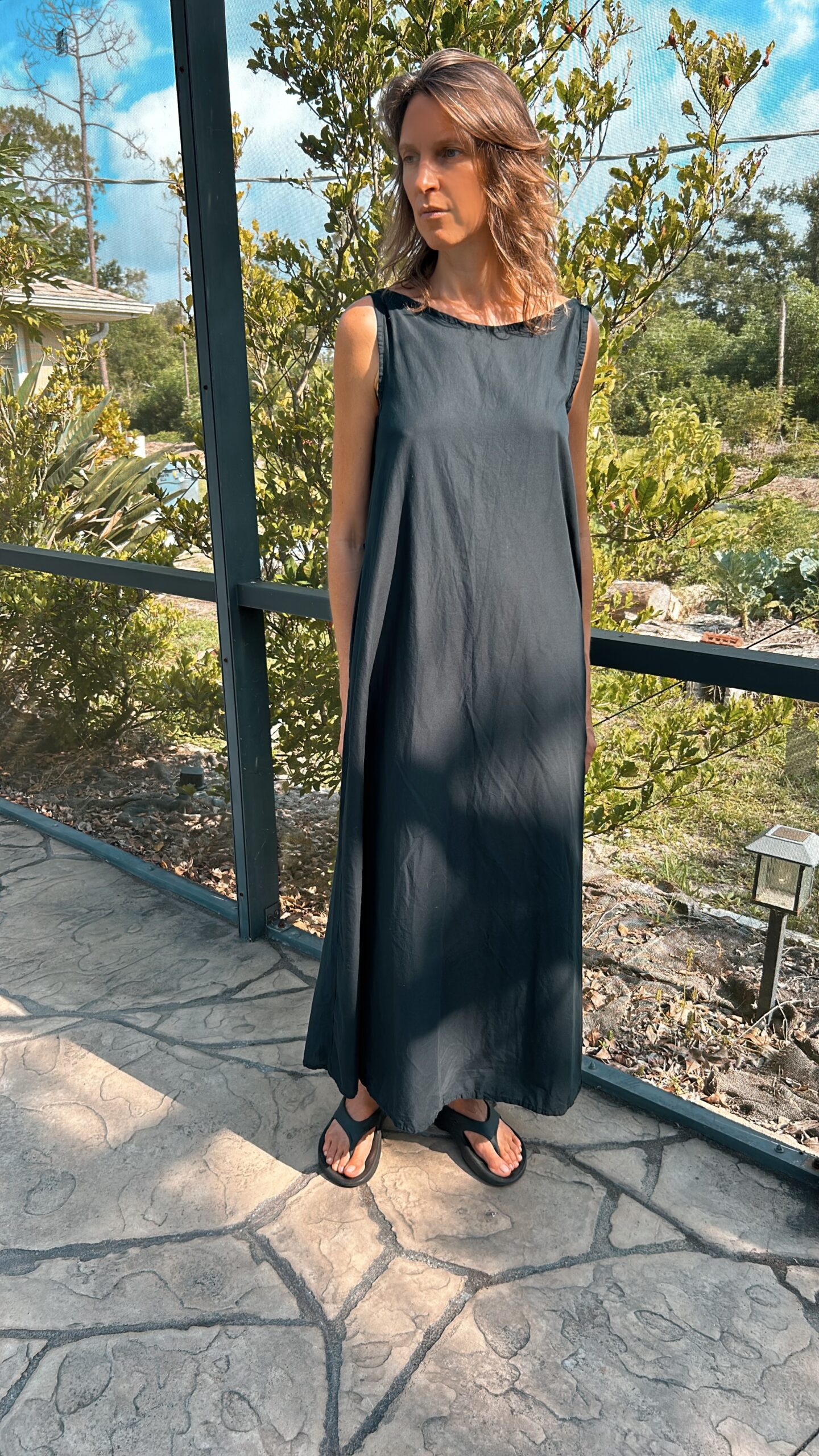From Illness to Wellness: A Journey Through Chronic Diseases and Cancer
Disclaimer: The content shared in this blog recounts personal experiences with overcoming chronic diseases and cancer. It is not intended to provide medical advice or diagnosis. Always consult with a qualified healthcare professional for personalized medical guidance and treatment. Every individual’s medical situation is unique, and what worked for one person may not be suitable for another. This blog serves solely as a platform for sharing personal journeys and insights, and should not be construed as medical advice or a substitute for professional medical consultation.
Many of us fear incurable diseases or mortality. However, in our daily lives, these concerns often take a backseat as we make choices about food, exercise, clothing, and other routines. Some individuals, like Yuliya, are fortunate enough to confront these fears head-on from a young age because their bodies rebel in sickness, prompting a deep awareness of mortality and illness. Yuliya’s story is a testament to resilience as we explore her journey from a sickly child to facing a cancer diagnosis and ultimately discovering a path to health and vitality.
Yuliya was born in the small town of Tambov, Russia, in 1978. At an early age, she was diagnosed with chronic gastritis, ulcerative colitis, and irritable bowel syndrome. Due to constant pain, she couldn’t eat the food offered by her parents. Yuliya recalls being in constant pain since the age of 10 and frequently faced the choice between eating and enduring pain or starving to be pain-free, often opting for the latter. Her parents paid little attention to her condition, and because of her extremely slim appearance, she was bullied at school from a young age. Constant starvation led Yuliya to develop an eating disorder, often overeating out of fear of impending pain and starvation.
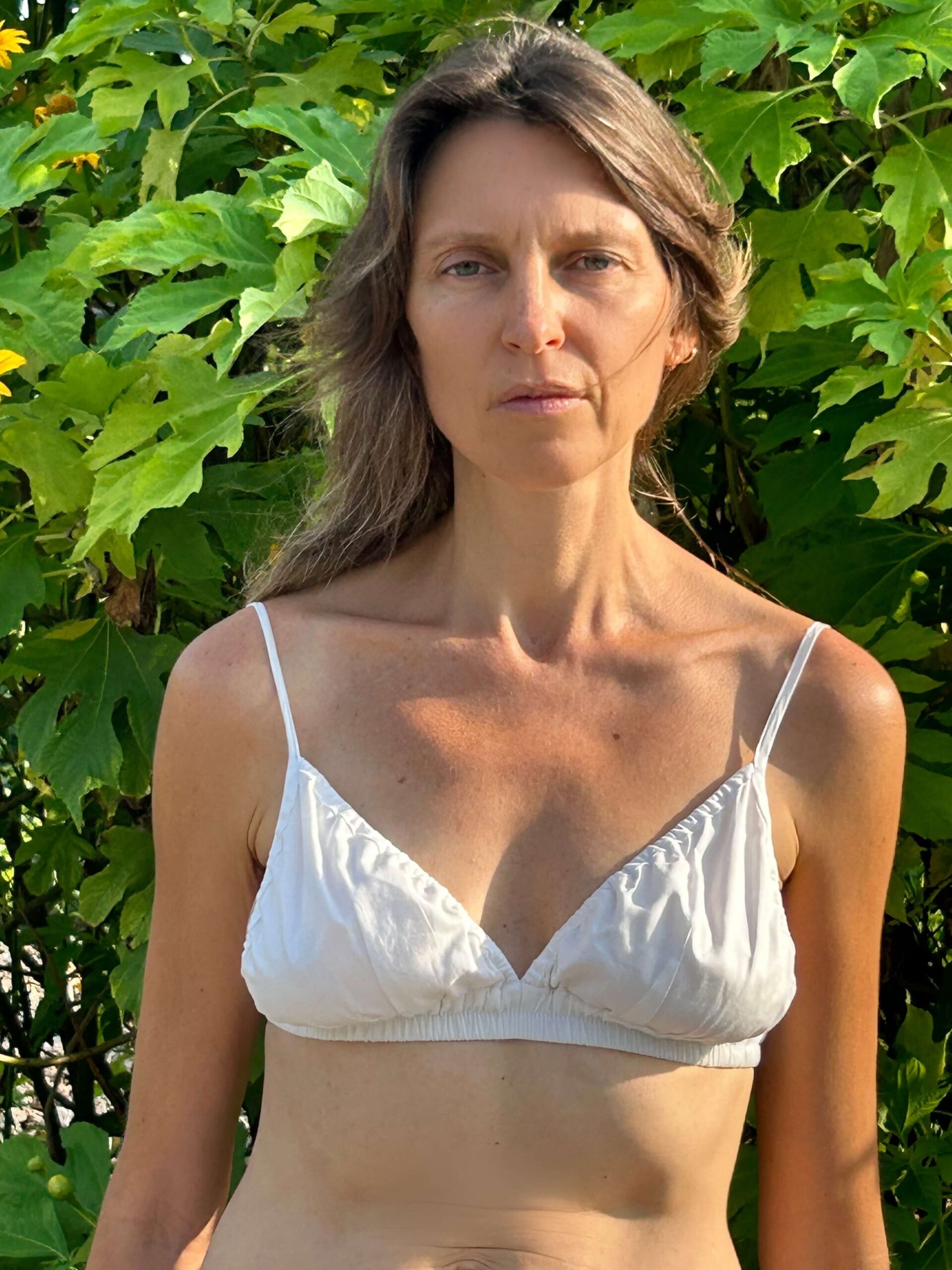
With no friends due to severe bullying in school, Yuliya turned to books. They became her companions, enriching her with remarkable intelligence and focus. So much so that when Yuliya made the decision to move to the United States at the age of 20, she immersed herself in learning English. Within a year, she mastered the language, achieving a level of proficiency in reading and writing that surpassed that of some of her American peers.
” NY Super Fudge Chunk Ben and Jerry’s was my favorite drug”
Yuliya’s first year in the US was grueling. She struggled to find a job to finance her education and maintain her student status, a daunting challenge. Despite her efforts, her heavy Russian accent often led to short-lived stints at restaurants where customers struggled to comprehend her. The stress of financial instability exacerbated her pre-existing mild depression, pushing her towards binge-eating, particularly of ice cream and other comfort foods, which only intensified her pain. Her condition deteriorated significantly in the US. “NY Super Fudge Chunk Ben and Jerry’s was my favorite drug,” she says. It temporarily suppressed her depression but came with a heavy price: severe stomach pain, constant bloating, and constipation.
“It was very sunny, but it felt dark”
One day, everything changed. After yet another firing from waiting tables, Yuliya headed to her second job at a local bar. On her way there, she bought her usual pint of Ben & Jerry’s and ate it before starting her shift, hoping it would make her feel better. But this time, it didn’t. She even tried the most expensive cocktail to numb the pain, but it didn’t help either. It was her lowest point. Besides the looming pain, there was nothing else to look forward to. That night, Yuliya couldn’t sleep. The next morning, she had to drag herself to school, feeling hungover and depressed, despite the nice sunny May day. “It was very sunny, but it felt dark,” she recalled.
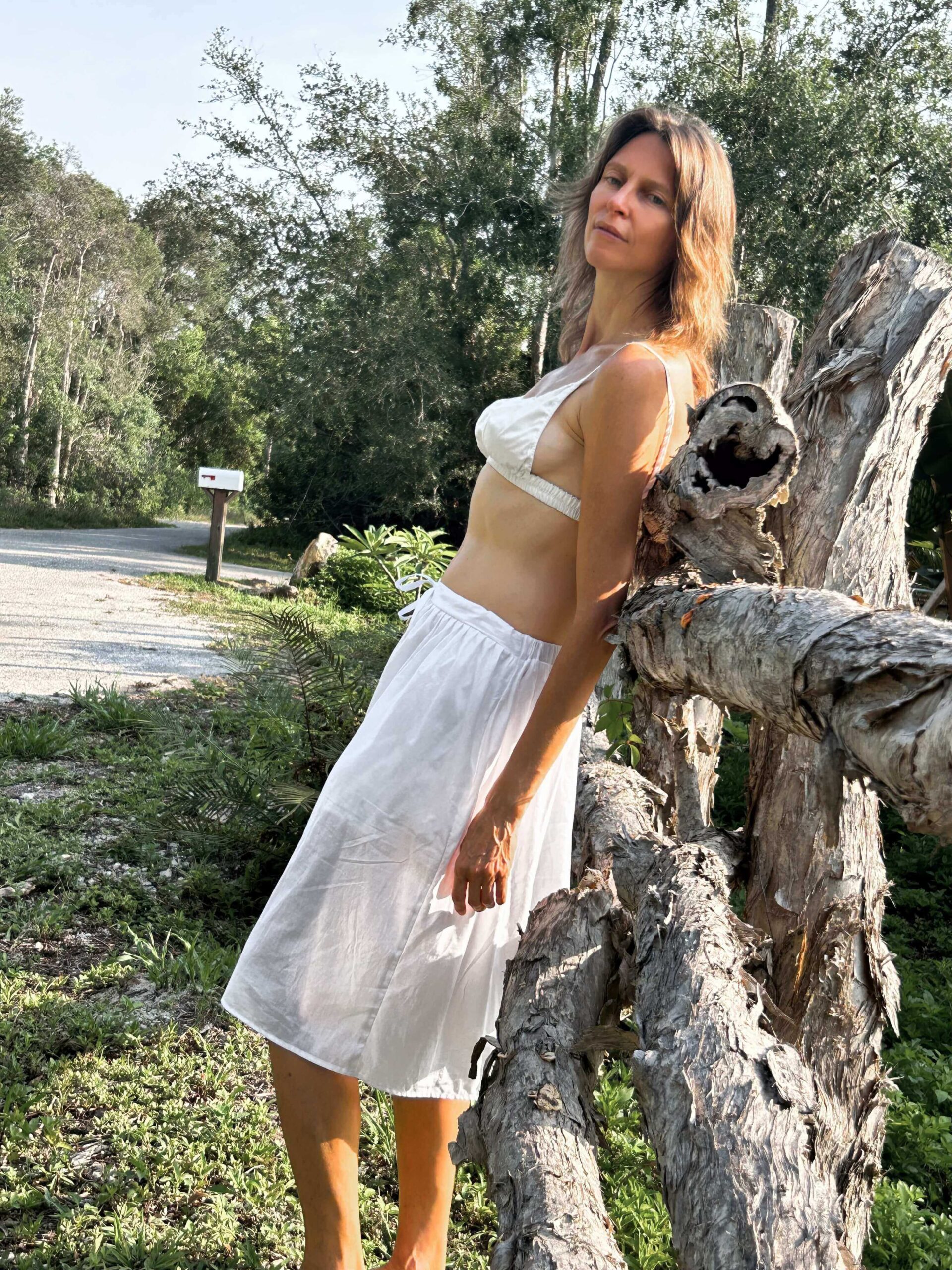
During breaks from class, she went to an internet cafe (it was 2002) to search for a way to beat sugar addiction. There, she found a book suggesting a 30-day regimen of eating only fresh fruits and vegetables as a cure. That same night, she got a call from a restaurant named Caravan of Dream, located in the East Village, offering her a job. She was asked to start the next day. To her surprise, the restaurant was entirely vegan, serving meals made exclusively from fresh produce (raw food). Having recently read “The Alchemist” by Paulo Coelho, Yuliya saw this as a sign. That night, on June 1st, 2002, she began a raw food diet. “Some people transition to raw food overnight, but for me, it happened in a moment,” she recalls.
“Some people transition to raw food overnight, but for me, it happened in a moment”
The transition wasn’t without fear. Throughout her life, many doctors had warned her that fiber-rich foods were the worst enemy for her stomach. However, she was determined to overcome her addiction, reasoning that it was only for 30 days (her stomach could survive that). She cites Winston Churchill famous phrase “if you going through hell, keep going”. What happened next was nothing short of miraculous. Within two weeks of consuming raw fruits and salads, her stomach pain vanished, along with the issues of gas and constipation. In addition to curing her sugar addiction, Yuliya also found relief from her lifelong chronic gastritis, ulcerative colitis, and irritable bowel syndrome. What began as a 30-day experiment has evolved into a 22-year journey, and Yuliya has no intention of reverting to a “regular” diet. “I still cannot fathom that doctors, with all their knowledge, had not realized that the cure was in the diet” she says.
“I still cannot fathom that doctors, with all their knowledge, had not realized that the cure was in the diet”
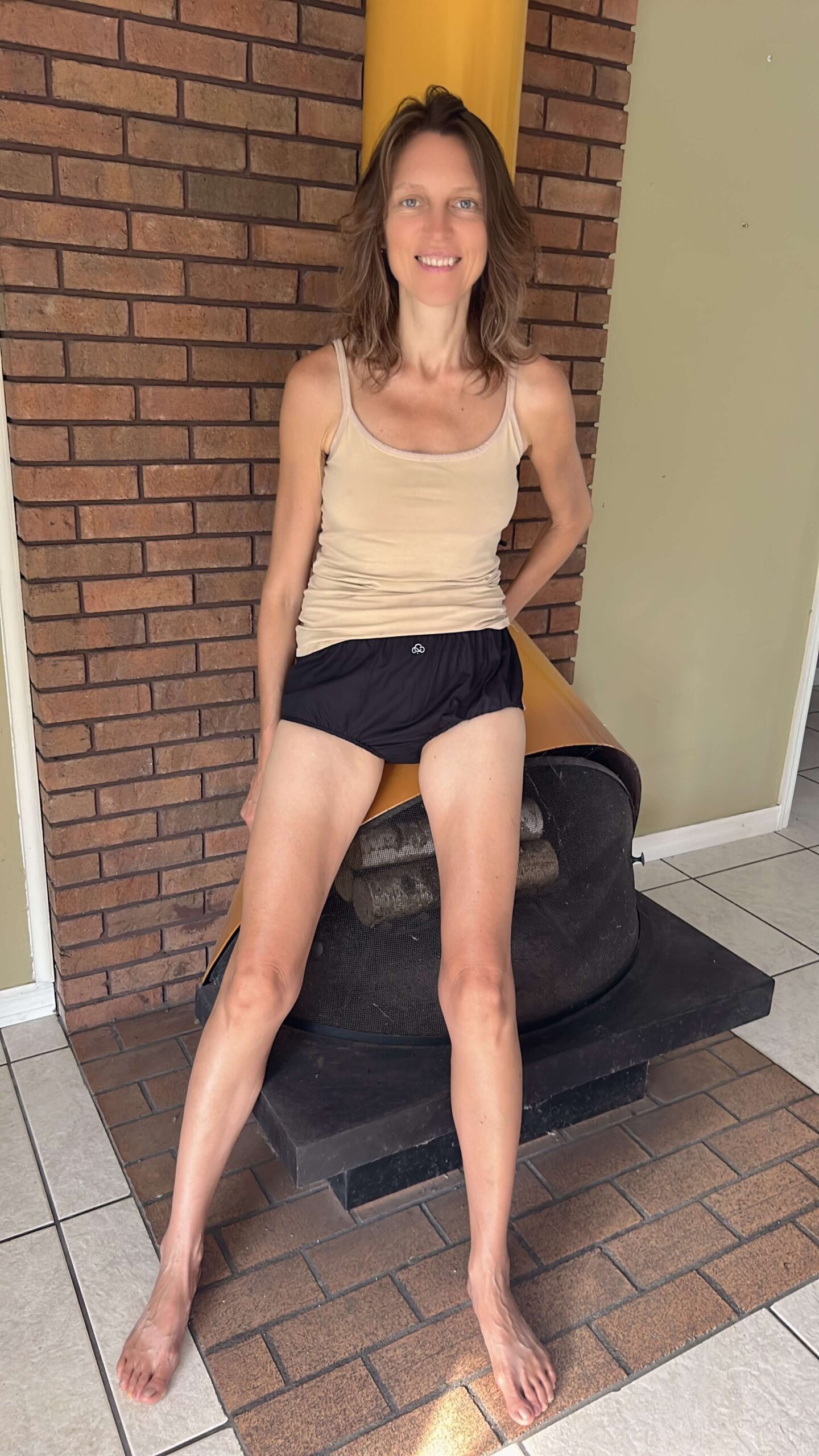
However, Yuliya’s health struggles didn’t end there. In 2012, she noticed an itching bump on the side of her stomach. Initially dismissing it, she grew concerned as it gradually increased in size and began to bleed. “It was like a volcano – changing shape every day with blood pouring out,” she vividly recalled.
“It was like a volcano – changing shape every day with blood pouring out”
When Yuliya was diagnosed with basal cell skin cancer, she was in total disbelief. “Honestly, after being on a raw diet for 10 years, I was confident that cancer would never happen to me.” In addition to the raw food diet, Yuliya had completed a 21-day water fast just six months earlier. She felt as pure as she could be. Yuliya felt invincible until she received a call from the doctor’s office scheduling her for immediate surgery because the cancer cells were multiplying rapidly.
“Honestly, after being on a raw diet for 10 years, I was confident that cancer would never happen to me”
After the initial shock and devastation subsided, Yuliya had to give her consent to surgery. After much thought, Yuliya declined, opting instead to find a cure herself. After all, doctors hadn’t exactly been her saving grace in the past, especially when it came to her childhood ailments. Yuliya was now substantially more knowledgeable and aware of her body, thanks in part to her completion of a 10-day Vipassana meditation course a couple of years earlier. With daily meditation practice under her belt, she felt empowered to explore alternative paths to healing. Yuliya’s reasoning sounds like this: “After I realized that I can have cancer like other mortals despite my clean diet, this was my chance to figure out how to deal with the monster. If I have another cancer in the future, I didn’t want to cut pieces of my body.”
“After I realized that I can have cancer like other mortals despite my clean diet, this was my chance to figure out how to deal with the monster. If I have another cancer in the future, I didn’t want to cut pieces of my body”
And so the search began. Yuliya started digesting every single piece on cancer cure from the internet. But all she could find was how to get rid of the disease and not the cause. It was important for Yuliya to understand why it happened to her in order to figure out the cure. Aside from trying multiple holistic ointments, some of which burned her skin, and supplements, Yuliya embarked on another long water fast in India and a three-month trip to the Philippines. There, she swam in the ocean daily, exercised, and meditated. During both trips, the cancer would become dry and dormant but not disappear. The search continued.
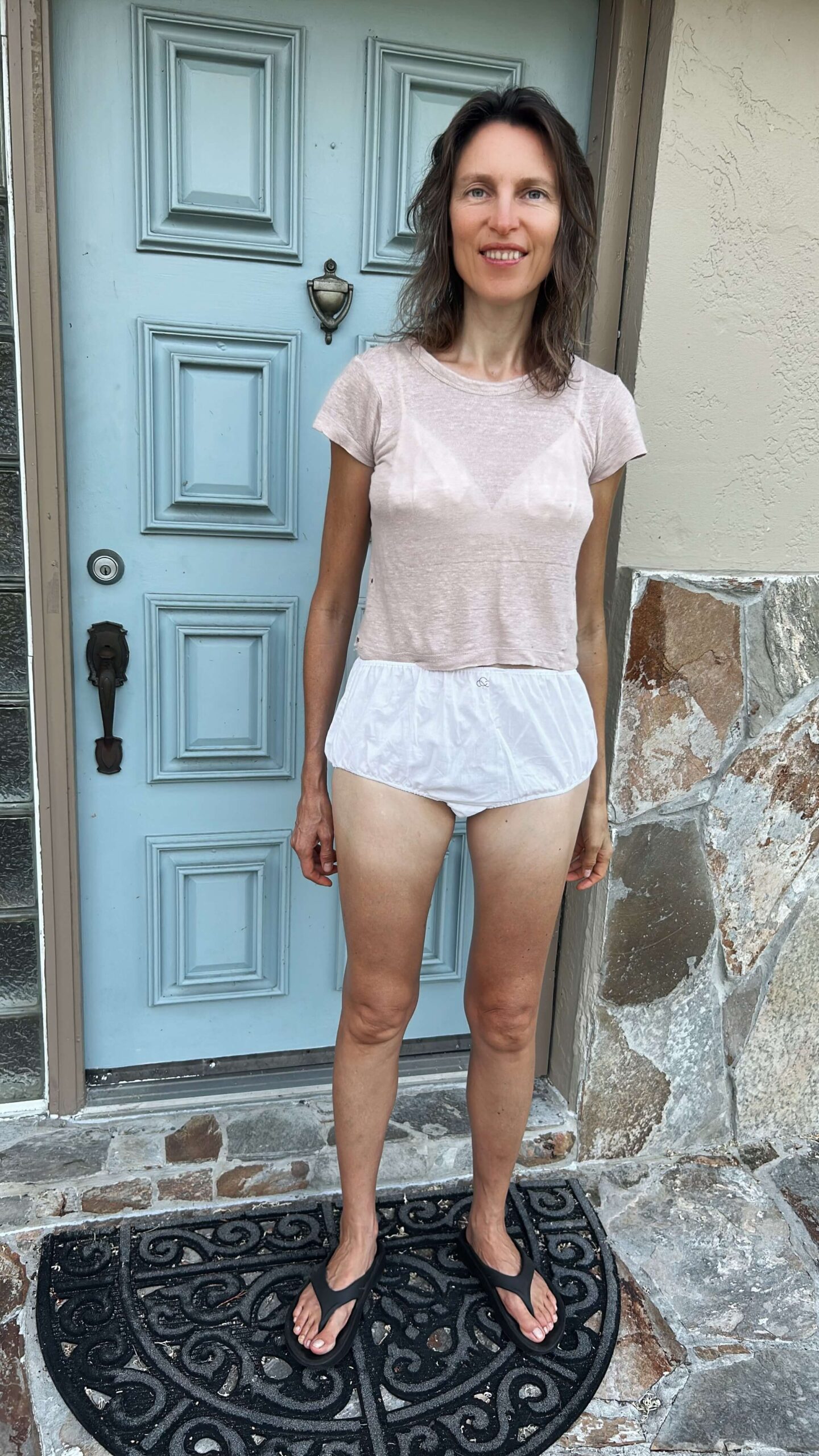
Of all the cancer theories that Yuliya read about from multiple books, journals, and health care experts, one that made the most sense to her was that of Dr. Robert Morse. According to him, cancer is caused by inherent (genetic) weakness, toxicity, and over-acidity in the body. These factors, coupled with a lack of oxygen, create a perfect environment for cells to grow uncontrollably. This explains why many people have cured cancer simply by oxygenating their bodies – getting rid of stress that causes body tension and blocks oxygen.
Since Yuliya couldn’t change her genes, the cure was to get rid of toxins and acidic foods. The best way to eliminate toxins from the skin was through sweating. To experiment, Yuliya went to a Russian sauna, but the high temperature made it difficult for her to stay longer than 10 minutes. She had to find an alternative. Bikram yoga was gaining popularity in New York City, with multiple studios opening up. Yuliya decided to try a 90-minute class. Immediately after the class, the itching stopped for half an hour before resuming. Convinced of its potential, Yuliya purchased a 30-day class package and committed to daily Bikram practice.
This was before her trip to the Philippines, where Bikram yoga was not available. After 30 days of Bikram yoga, the cancer went dormant and continued to remain so during Yuliya’s trip to the Philippines.
However, a couple of months after Yuliya’s return from the Philippines, her cancer woke up with the same speed and force as when initially diagnosed – growing, bleeding, and itching. On that day, Yuliya resumed her Bikram yoga practice and was determined to get rid of the cancer once and for all. It worked this time around.
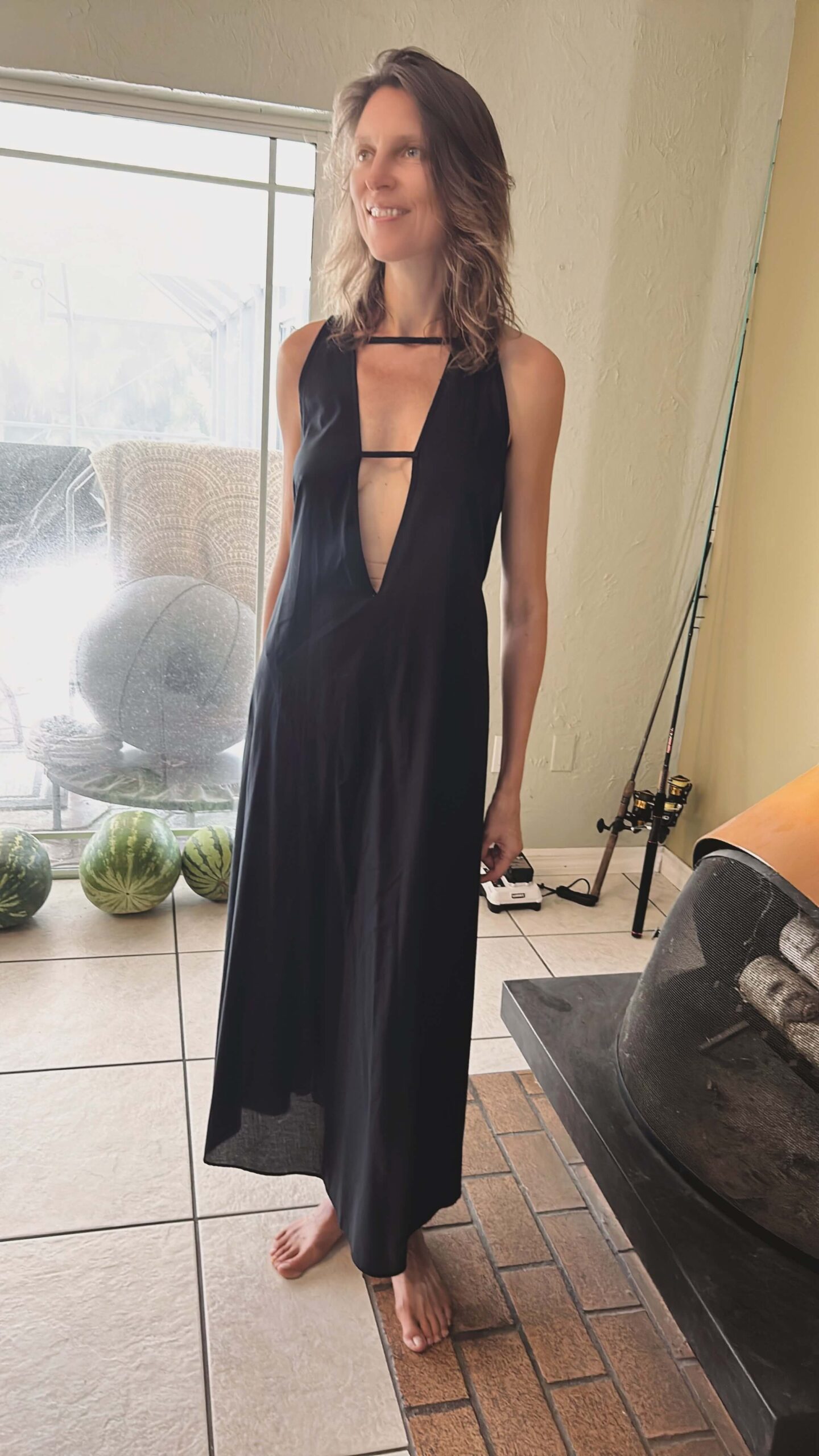
Yuliya’s Bikram routine was consistent: she practiced daily on weekdays and took two consecutive classes each weekend day. During these sessions, she wore short shorts to monitor her cancer. With each class, she observed how sweat poured out of it. Initially, the cancer went dormant as before, but after about three months of continuous yoga, it started to shrink. This progress reinforced Yuliya’s determination and strength to continue the fight. Even upon moving to Hawaii, she made sure to find an apartment close to a local Bikram studio and attended a class on the day of her arrival. After six months, the cancer completely disappeared, leaving behind a slight scar, white in color, to remind Yuliya of her victory over it.
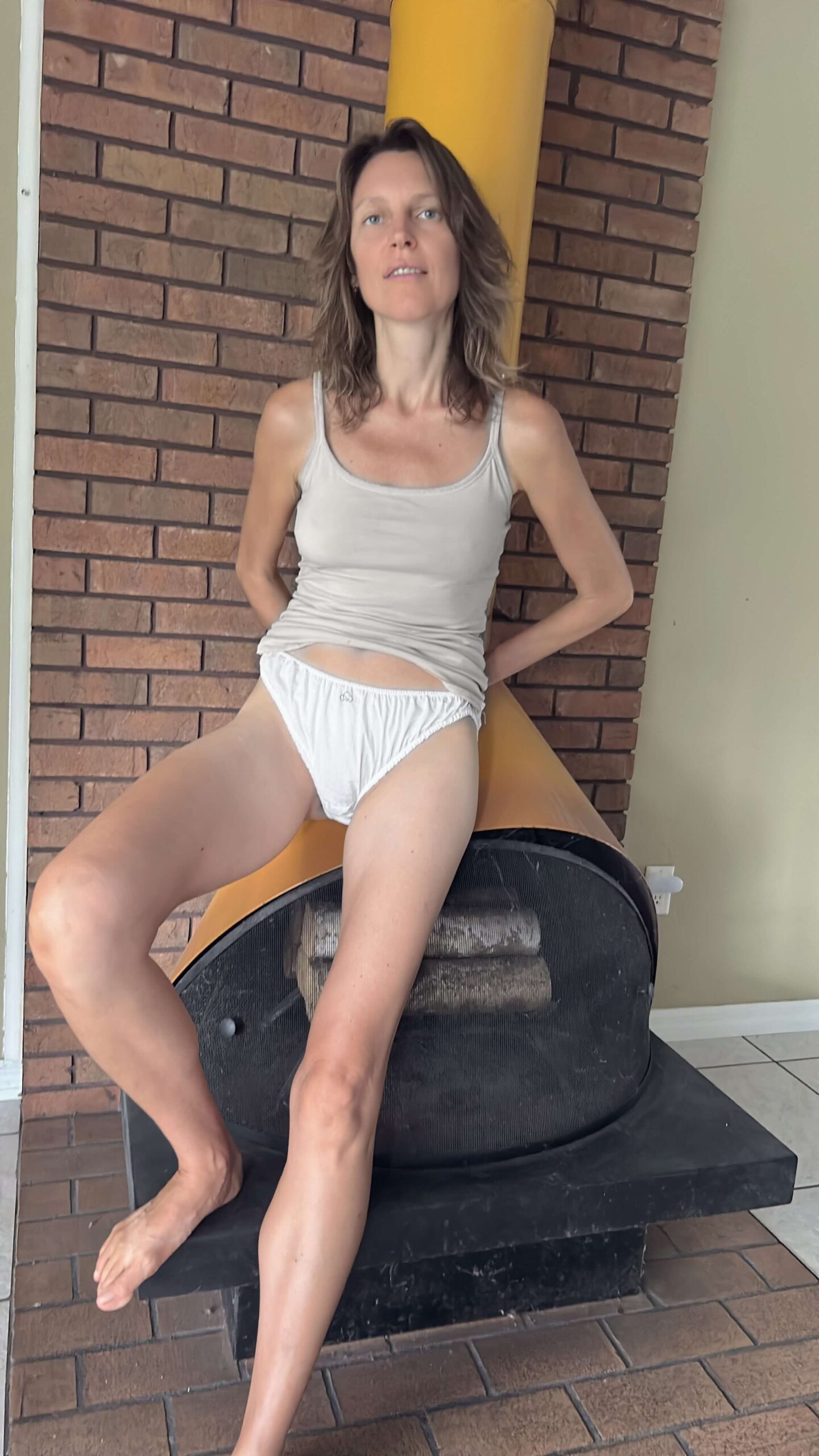
Yuliya’s accomplishments don’t end there. While fighting cancer, she co-founded the Woodstock Fruit Festival, which has become a resounding success. Held annually, it attracts thousands of returning and new participants from all over the world. During the festival, attendees indulge in exclusively raw (nature-made) food meals, engage in yoga, meditation, mud parties and spend quality time in nature, spreading awareness of holistic lifestyles.
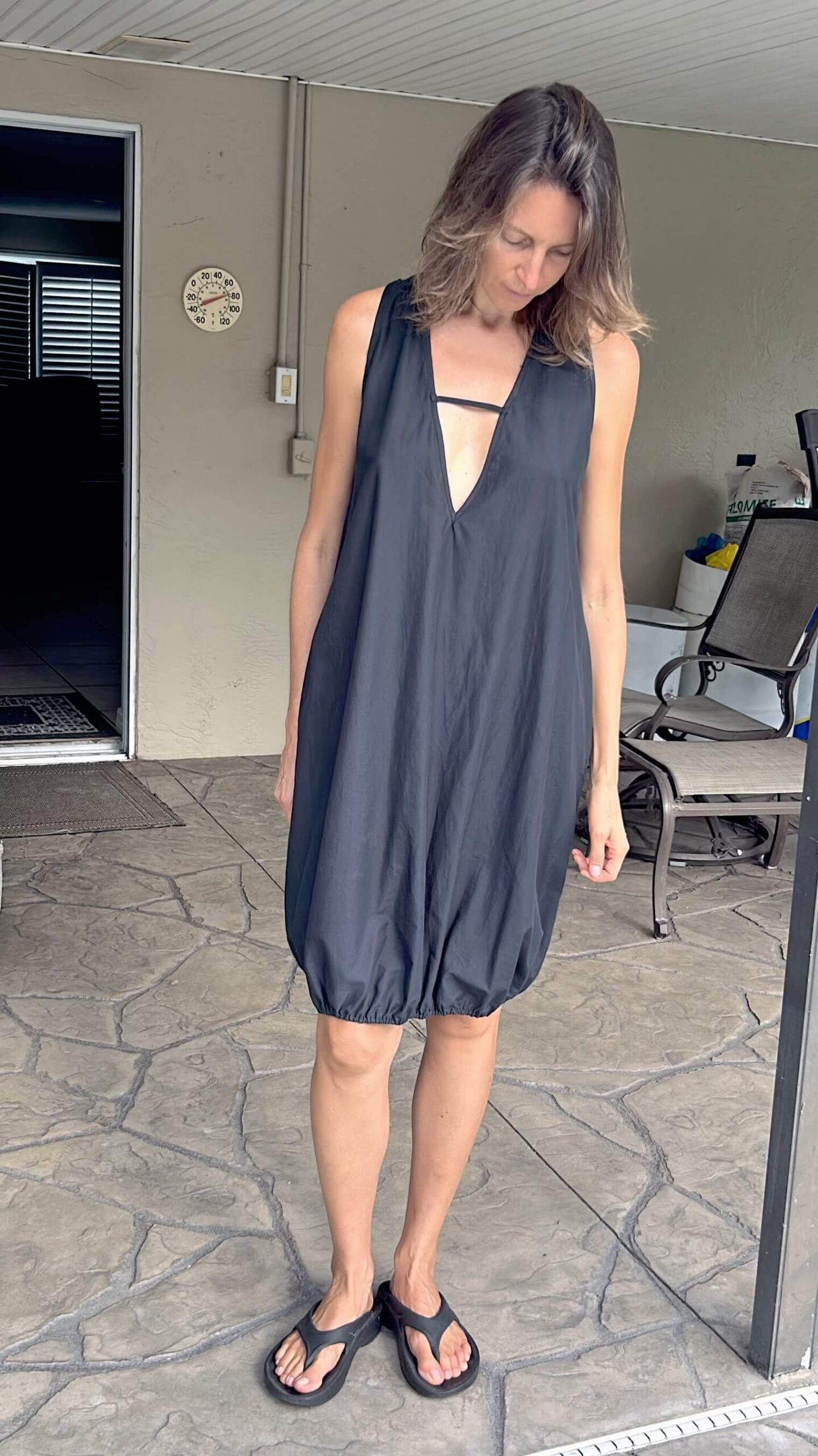
Yuliya feels incredibly blessed to be living in the United States. According to her, every single citizen of this country can afford to maintain a healthy diet. Recently, she conducted an experiment, living on a diet rich in fruits and vegetables for just $9.70 a day, which is the average amount provided by the government for low-income individuals. Frozen vegetables are inexpensive when bought in bulk from stores like Costco or other big chain supermarkets, and seasonal fruits are often available at discounted prices. The issue, she believes, lies not in the lack of money, but in the lack of awareness regarding the damaging effects of acidic foods (such as highly processed items, sugar, dairy, and meat) on the human body.
Out of all the places she has ever lived, Hawaii has the perfect climate in Yuliya’s opinion. “There, you feel that the entire environment supports your well-being. Maybe this was the climate when the first human cell appeared on the planet,” she says.
“There, you feel that the entire environment supports your well-being. Maybe this was the climate when the first human cell appeared on the planet”
Yuliya was among the early customers of Cotton Slut. She firmly believes that wearing tight clothing, including underwear, can hinder blood circulation and oxygen supply to the body. “I think that women who wear tight bras constantly compressing their breasts are depriving them of sufficient oxygen, which may contribute to breast cancer later in life,” she explains. Now, she exclusively wears our pantaloons for sleep and claims she has never felt so comfortable sleeping in underwear.
“I think that women who wear tight bras constantly compressing their breasts are depriving them of sufficient oxygen, which may contribute to breast cancer later in life”
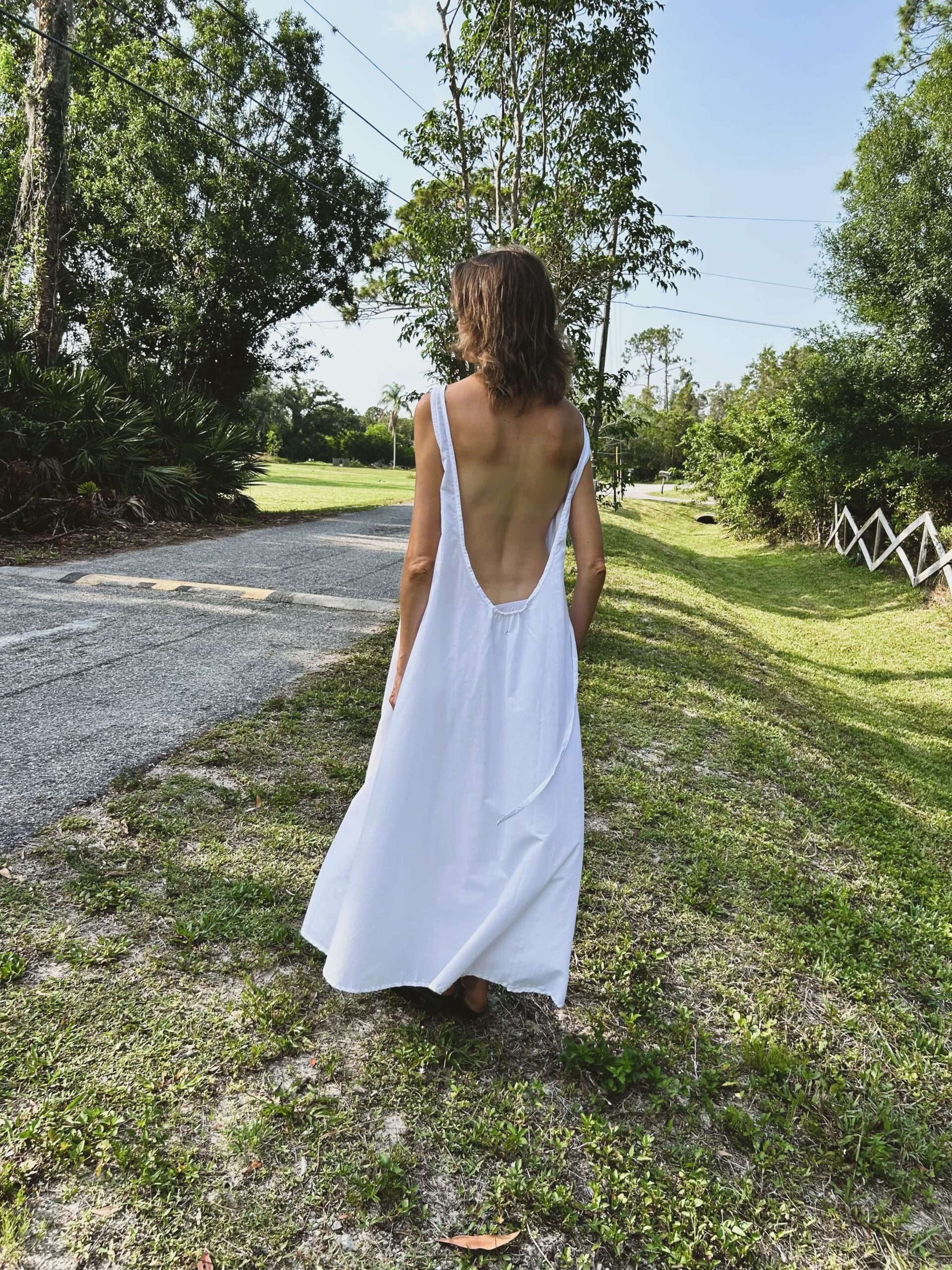
As for her lifestyle, Yuliya lives a simple life. She eats exclusively raw fruits and vegetables and hardly generates any garbage because she composts all the leftover food in a fruit forest next to the house she lives at. She doesn’t own a lot of clothing, but she buys every single piece mindfully, considering how it affects her body and the environment. She finds joy in every day of her life because it is in harmony with nature, and she feels immense gratitude for everything she has.
